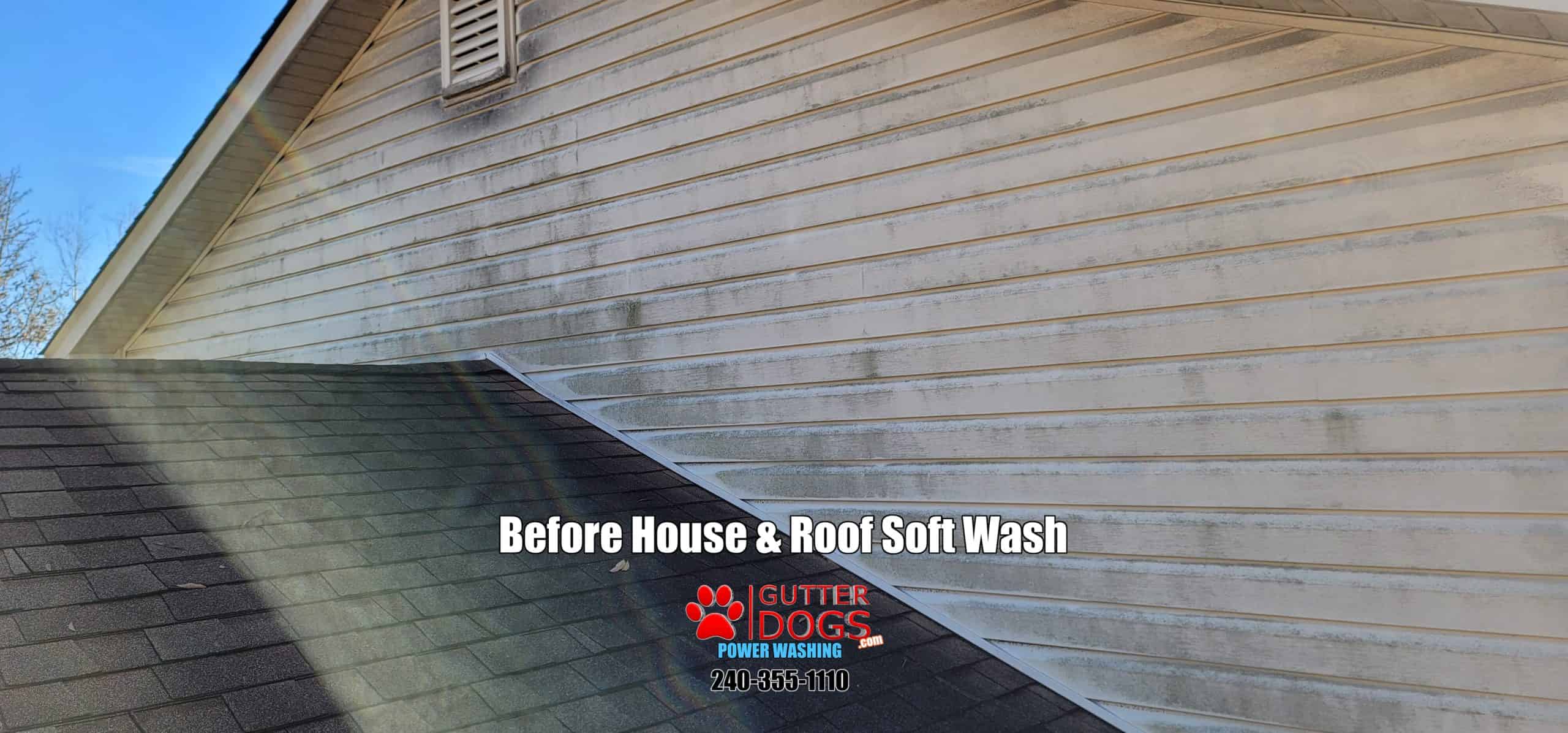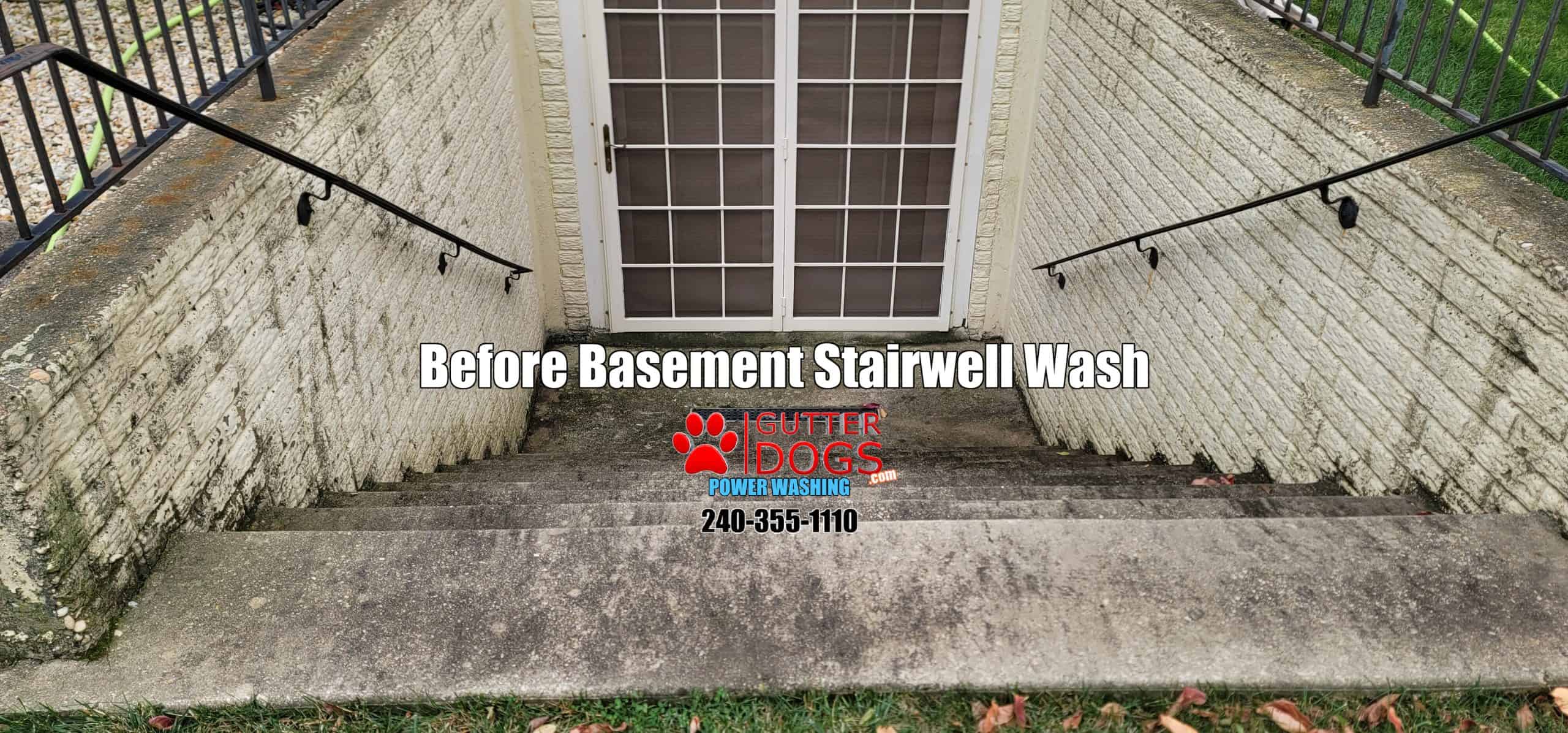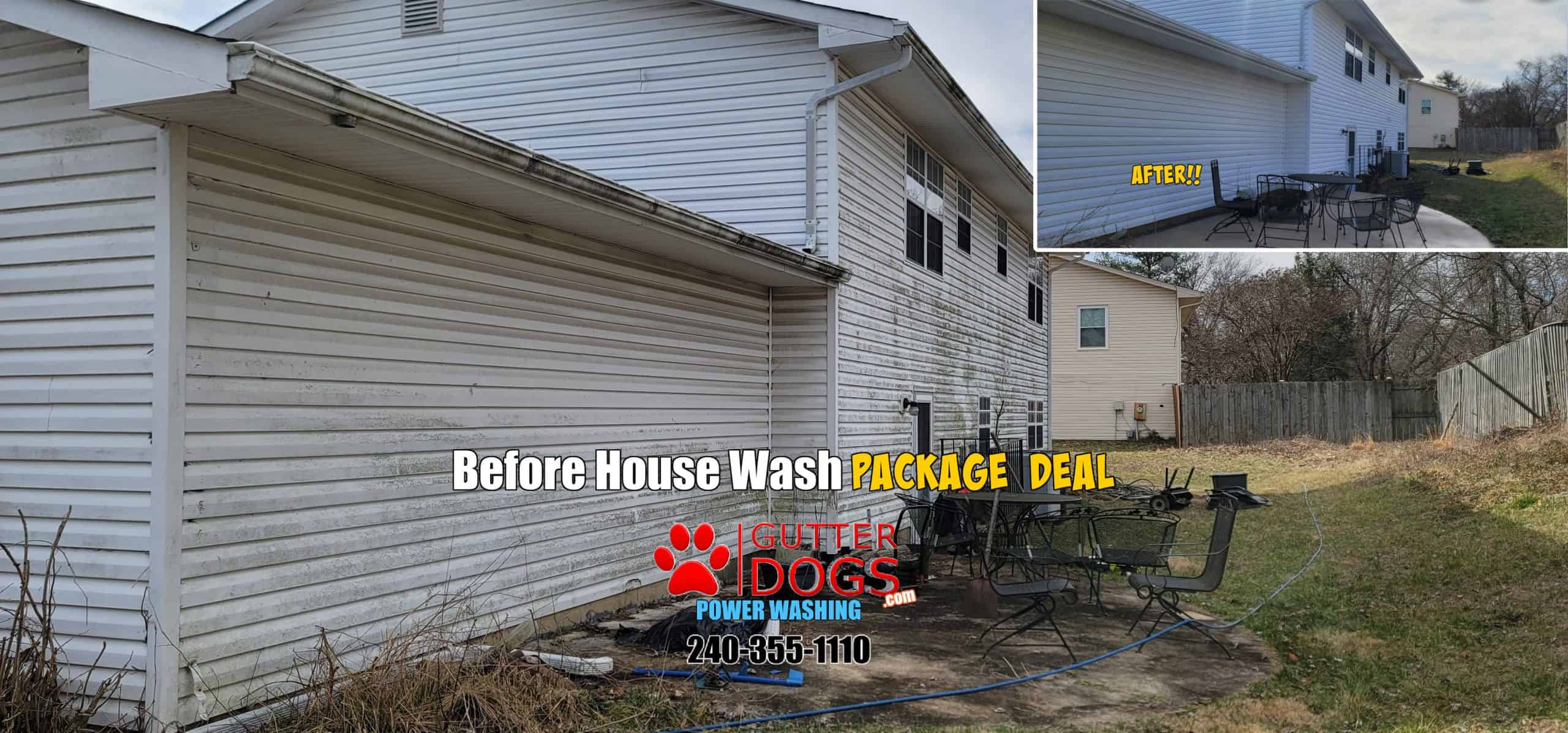Thinking about a Roof Cleaning service in Bladensburg Md?
Roof cleaning Bladensburg Md Roof cleaning just makes sense? It’s more than just curb appeal. It’s the life of your roof as well. These organisms, gloeocapsamagma, GCM, is what the black staining is. Then there is moss and lichens. These organisms are shortening the life of your roof. They are a pest eating your roof. Cleaning your roof with a proven non pressure method will add years to your roof at a fraction of the price of replacing it!
 Schedule a Roof Cleaning Today
Schedule a Roof Cleaning Today
Your roof will remain free of organic stains for about 5 years, after our safe no pressure roof cleaning service. On whole roof cleanings only.
In addition to Roof Cleaning we offer other exterior cleaning services
Originally called Garrison’s Landing, Bladensburg was renamed in honor of Thomas Bladen, governor of Maryland, 1742–1747. Bladensburg was established in 1742 as a regional commercial center by an act of the Maryland General Assembly. The act also authorized the town commissioners to purchase 60 acres (240,000 m2) of land to be laid out in 1-acre (4,000 m2) lots. The act required that a house covering at least 400 square feet (37 m2) of ground with a brick or stone chimney be constructed within 18 months of the sale of the lot. As of 6 June 1746, only 18 of the lots had been improved according to the stipulations of the act. Christopher Lowndes‘ house, Bostwick, and those built by David Ross and William Hilleary (the William Hilleary House) were among them.[6] With the establishment in 1747 of a government tobacco inspection system, Bladensburg became a designated tobacco inspection and grading port. The Market Master’s House is evidence of that role.
A seaport during the colonial period, Bladensburg is best remembered for the Battle of Bladensburg (1814) during the War of 1812, notable because it was the only battle in American history in which a sitting president (James Madison) rode into battle. America’s eventual defeat, called “the greatest disgrace ever dealt to American arms”,[7] which cleared the way for the burning of Washington by British troops. Its role as a seaport faded as the Anacostia River silted up and larger ships could no longer reach the port.
Request a Quote













Leave a Reply
You must be logged in to post a comment.